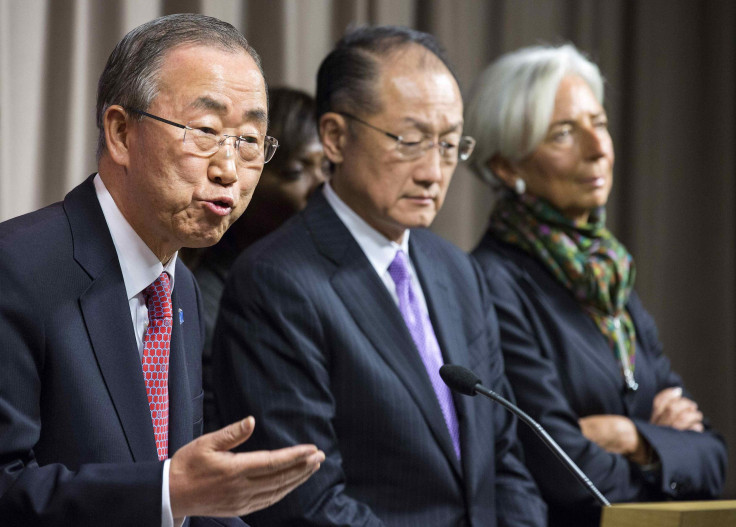International Ebola Fight Helping But More Work Needed: UN Chief

WASHINGTON (Reuters) - International efforts to fight Ebola are helping to slow the rate of new infections in some areas but increased infections in others and fears of further contagion in Mali indicate much work is still to be done, United Nations Secretary-General Ban Ki-moon said on Friday.
Ban said more trained medical teams are needed, especially in remote districts of countries in West Africa where more than 5,400 people have been killed by the virus. Ban said the coordinated efforts of country leaders and safer burial practices, combined with international support, are helping.
"If we continue to accelerate our response, we can contain and end the outbreak by the middle of next year," Ban told reporters after a U.N. Chief Executives' board meeting in Washington, D.C. "I appeal to the international community to stay engaged."
Still, he added, "the new chain of transmission in Mali is of course of deep concern."
All six known Ebola cases in Mali have died. Most of the deaths and cases are in Liberia, Sierra Leone and Guinea.
Margaret Chan, director-general of the World Health Organization, told reporters she is traveling to Mali to discuss the situation. She said 120 people who had contact with the first person to die of Ebola in Mali, a 2-year-old child, had passed the 21 day time-frame in which a person is considered potentially at risk of developing symptoms.
Of greater concern, she said, is a second person with Ebola who crossed into Mali from Guinea and has elicited close to 500 contacts.
"We are scaling up our action," Chan said. "We must smother this little fire before it gets out of control."
Overall, Chan said, there are some signs of progress in battling Ebola, and that cases are stabilizing in some areas.
The death toll has risen to 5,459 out of 15,351 cases identified in eight countries at the end of Nov. 18, the WHO said on Friday. The figures showed an increase of 39 recorded deaths and 106 new cases since those issued on Wednesday.
"We must maintain our vigilance," Chan said. "Complacency would be our enemy."
(Reporting by Toni Clarke; Editing by Grant McCool)



























